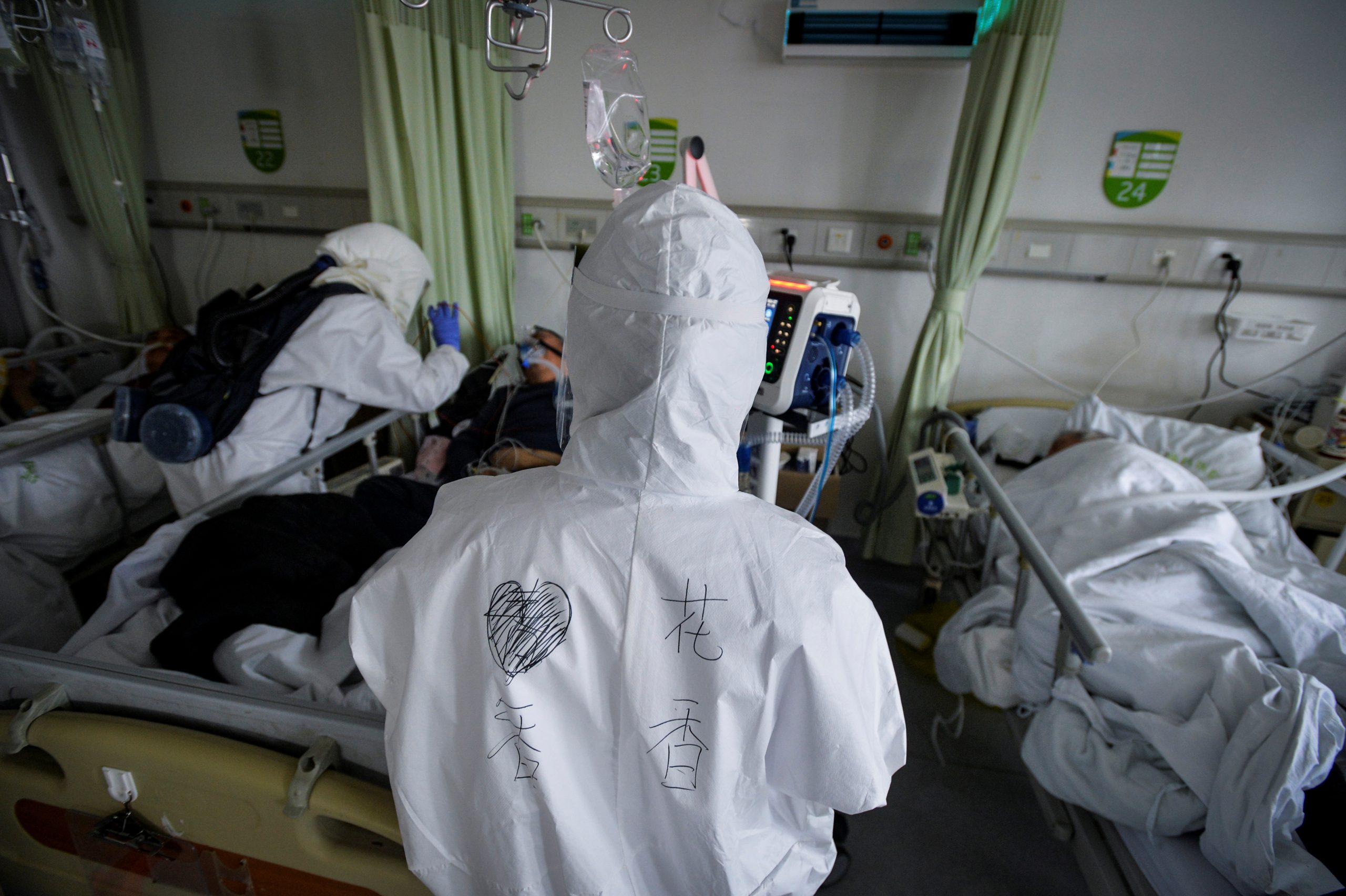A Chinese doctor who was reprimanded for warning against a “SARS-like” coronavirus before it was officially recognised died of the virus on Friday, triggering a wave of mourning in China and rare online expressions of anger towards the government.
The death of Li Wenliang, 34, came as Chinese President Xi Jinping assured the United States that China was doing all it could to contain the virus.
The death toll in mainland China reached 637 on Friday, with a total to 31,211 cases, World Health Organization chief Tedros Adhanom Ghebreyesus said in Geneva.
“For the last two days there had been fewer reported infections in China, which is good news, but we caution against reading too much into that,” he told the WHO Executive Board.
“The numbers could go up again.”
U.S. President Donald Trump, after speaking to Xi by phone, said China was showing “great discipline” in tackling the virus.
“Nothing is easy, but he will be successful, especially as the weather starts to warm & the virus hopefully becomes weaker, and then gone,” Trump said on Twitter. “…We are working closely with China to help!”
Ophthalmologist Li was among eight people reprimanded by police in the city of Wuhan, the epicentre of the flu-like contagion in central Hubei province, for spreading “illegal and false” information.
Li’s social media warnings of a new “SARS-like” coronavirus – a reference to Severe Acute Respiratory Syndrome, which killed almost 800 people around the world in 2002-2003 after originating in China – angered police.
China was accused of trying to cover up SARS.
Li was forced to sign a letter on Jan. 3, saying he had “severely disrupted social order” and was threatened with charges.
A selfie of him lying on a hospital bed this week wearing an oxygen respirator and holding up his Chinese identification card was shared widely online.
“We deeply mourn the death of Wuhan doctor Li Wenliang … After all-effort rescue, Li passed away,” the ruling Communist Party’s People’s Daily said on Twitter.
Social media users called Li a hero, accusing authorities of incompetence.
“Wuhan indeed owes Li Wenliang an apology,” Hu Xijin, editor of the government-backed Global Times tabloid, said on social media. “Wuhan and Hubei officials also owe a solemn apology to the people of Hubei and this country.”
Li’s death was a “tragic reminder” of how China’s preoccupation with maintaining stability drives it to suppress vital information, Nicholas Bequelin, Southeast Asia regional director for Amnesty International said.
“China must learn the lesson from Li’s case and adopt a rights-respecting approach to combating the epidemic,” he said.
DATA WATCH
Some media described Li as a hero “willing to speak the truth” but there were signs that discussion of his death was being censored.
The topics “the Wuhan government owes doctor Li Wenliang an apology” and “we want free speech” briefly trended on Weibo late on Thursday, but yielded no search results on Friday.
The virus has spread around the world, with 320 cases in 27 countries and regions outside mainland China, a Reuters tally of official statements shows.
Two deaths have been reported outside mainland China, in Hong Kong and the Philippines, but how deadly and contagious the virus is remains unclear, prompting countries to quarantine hundreds of people and cut travel links with China.
There were 41 new cases among about 3,700 people quarantined in a cruise ship moored off Japan, taking the total on board to 61.
Chinese-ruled Hong Kong quarantined for a third day a cruise ship with 3,600 on board after three people who had been on the vessel proved infected.
Singapore reported three more coronavirus cases not linked to previous infections or travel to China, prompting it to raise its alert to orange, the level it reached during the SARS outbreak in 2003.
China has sealed off cities, cancelled flights and closed factories, cutting supply lines to global businesses, so that Beijing resembles a ghost town, with main thoroughfares and tourist spots almost deserted.
The majority of U.S. firms with operations in China expect the outbreak to cut revenue this year, and some are accelerating plans to shift their supply chains out of the country, according to a poll by Shanghai’s American Chamber of Commerce.
The ramifications are being widely felt.
China’s central bank vowed further support for its economy, with the outbreak expected to knock two percentage points, or more, off its first-quarter growth, from 6%, analysts said.
Chinese stocks had their worst week since May, while elsewhere in Asia, financial markets slipped after several days of gains.
As Trump praised China’s discipline, the head of the Beijing Municipal Bureau of Justice, Li Fuying, told reporters that people deliberately concealing contacts or refusing to go into isolation could be punished with death.
(Reporting by Se Young Lee and Brenda Goh; Additional reporting by Ryan Woo in Beijing, Yilei Sun in Shanghai, Ismail Shakil in Bengaluru and Stephanie Nebehay in Geneva; Writing by Robert Birsel and Nick Macfie; Editing by Clarence Fernandez and Giles Elgood)

























 Continue with Google
Continue with Google